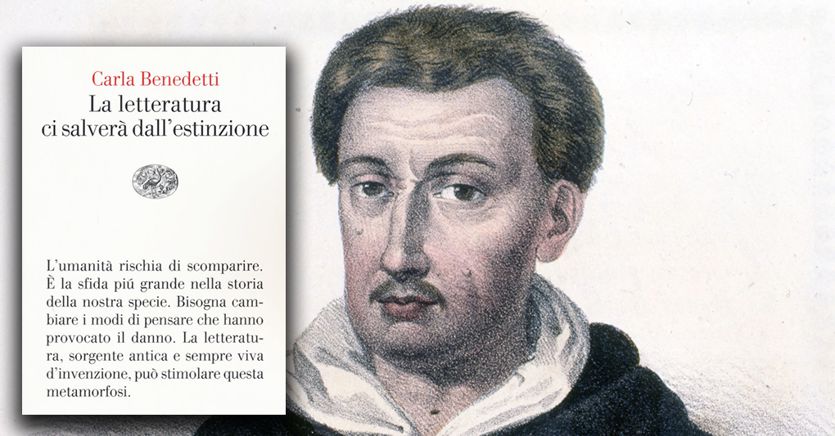I don’t know if the title of this book is right: Adding a question mark Will literature save us from extinction? perhaps it would do him more justice. In fact, it is not an optimistic prophecy, but an indication of a possibility that is to be played out and that involves not only writers but all of humanity.
At the center is the passionate and very well documented denunciation of the intolerable situation we are experiencing today, in the era of the Anthropocene, when the environmental catastrophe threatens to destroy our species and, the author tells us, there is no it is an answer, an adequate sensitivity, just as the need for a radical change in our mental forms is imposed.
Loading…
“Acrobats of the time”
It is necessary to become “acrobats of the time”, suggests Günther Anders, that is to put oneself in the shoes of those who will come later, of those posterity whose existence we risk doubting. The author himself becomes an example of how literature can play a role in this sense. His 1961 story, The Future Regret, stages Noah who, warned by God of the imminence of the flood, tries to convince men to save himself and succeeds not with persuasion, but with fear, reciting the kaddish alone. , the funeral lament, for the children who will die, for the grandchildren who will not be born.
Benedetti derives from here a series of oppositions, a grid that underlies the choice of texts, and authors, who can help ‘save us from extinction’. Thus, for example, the word must be neither assertive nor simply prophetic (as in the apocalyptic production), but arouse of feelings, of empathy towards the future; literature must act, so as to “tap into powers that are largely forgotten today”.
Alongside modern authors who act as points of reference, such as Amitav Gosh, Richard Powers, Dostoevskij, Tolstoj, Pasolini, Gadda, Elsa Morante, and above all Antonio Moresco, writings from the past are also reread in this key, such as the passage from canto XII of the Iliad where the rivers that will tear down the wall that the Achaeans have erected, without the consent of the gods, on the shore of the Hellespont are carefully named, or the verses of the VI of the Iliad where Glaucus replies to Diomede, who asks him to tell him who is: “Why do you ask the race? The lineage of men is like that of leaves, one is born, one is extinguished ”.
